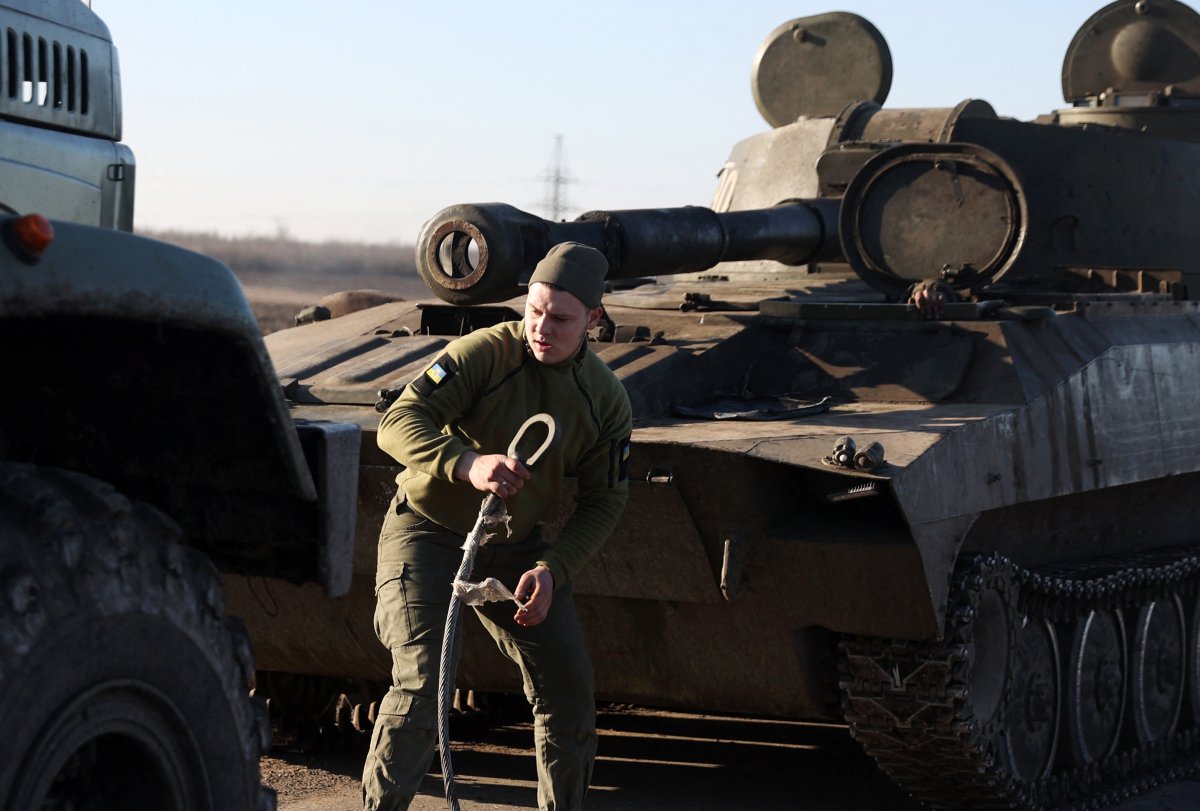Last week, policy and business leaders at the World Economic Forum's 53rd Annual Meeting in Davos explored global risks that will shape the coming year. Here's our take on the destabilizing risks to watch for in 2023, based on the seventh annual project with my New York University graduate students and crowdsourced consultancy Wikistrat.
Global Trends
—Superpowers Clash in a Leaderless World: Expect resurgent great power competition that limits progress on tackling global challenges. The U.S.-EU support of Ukraine against Russia will persist, but look for recurrent friction in the Western alliance (over aid and subsidies). U.S.-China competition will continue over tech (especially chips), security (Taiwan, Pacific), oil and green energy (rare earth minerals). Note the evolving China-Russia partnership seeking to rewrite a fragile post-Cold War order. And look for tension between India and China at the border and Indian Ocean.
—More Citizens Push Back Against Governments: Ukraine has reminded us that democracy is worth fighting for, but the global decline of democracy continues. Our research since 2017 identified a recurrent crisis of political legitimacy in which citizens have been challenging the political status quo. According to the 2023 Edelman Trust Barometer, of the 32,000 respondents in 27 countries surveyed, government is viewed as "unethical and incompetent." This year, the anti-government strain will persist, with additional concern over perceived electoral fraud in places like Brazil, Nigeria, Turkey, Myanmar, Thailand, Pakistan, and Zimbabwe.
—An Exodus of Climate Refugees: The establishment of the Loss and Damage Fund at COP27 was historic. Developing countries will be paid for climate disasters caused by emissions from developed countries. Yet we aren't clear who will contribute to the fund—or when (the goal of keeping global heating below 1.5 degrees Celsius also "died" at the summit). The post-Ukraine war push for renewables and schemes like carbon capture are positive for the long term. But, for now, expect more disasters (especially in places like the Sahel) to create more climate refugees, as governments struggle.
—Resurgent Global Food Crisis: Inflation peaked in 2022, but the International Monetary Fund (IMF) said food prices will "remain elevated" due to the Ukraine war. Many will feel the pinch this year, yet in certain regions, particularly Africa, the World Bank predicted more acute food insecurity that could lead to starvation. Food production will be hindered by high fertilizer prices. But the real threat to food security will come from climate change which no government can fix—not in 2023 anyway. Expect famine, food refugees and possibly more terrorist recruits as groups exploit the desperation of the food insecure.
—Extremism Keeps Evolving: As governments prioritize more urgent (especially economic) risks, violent hate will keep spreading—offline and online (including in the decentralized space). Islamist extremist groups (and the Wagner Group) will move deeper into parts of Africa and South Asia. Far right extremists will expand in Brazil, U.S. and Europe. Buddhist extremism may surge ahead of Myanmar's elections. Also worth noting is the rise of Hindu extremism inside and outside India (Canada, U.K., Australia, U.S.). And could a more violent form of environmental activism—such as eco-terrorism—surface?
Countries to Watch
—U.S.: The 2024 campaign is kicking off—things could get ugly in such a polarized environment. Former President Donald Trump may be a "liability" for Republicans and his return to the public space could incite violence now that his Facebook account is being reinstated. And don't forget about the looming recession.
—China: December was surprising—citizens protested the country's "zero COVID-19" policy and the government abruptly gave in (though later suggested the policy shift pre-dated the protests). The fallout has been devastating. Due to government inaction, citizens are turning to grassroots groups and companies for help. The social contract is weaker: Will citizens now push back on other issues?

—Russia: Much could go wrong that could lead to the collapse of President Vladimir Putin's regime. Rumors persist about his blood cancer (and whether he is alive, as President Volodymyr Zelensky questioned recently). The economy may have shown resilience last year but it is starting to "decay" due to sanctions and is heading for "incredible poverty."
—Iran: The women's rights protests that began in September continue (even men are protesting) and have evolved into a broader anti-regime movement. But what may become more destabilizing in 2023 is within the regime itself: Supreme Leader Ayatollah Ali Khamenei, 83 years old, is ill and concerns are growing about a succession crisis.
—Haiti: Plagued by food and fuel shortages, climate shocks, cholera, armed gangs, and no functioning political institutions (elected officials have fled the country), the situation has rapidly deteriorated since the president's assassination in 2021. In October, the prime minister called for foreign intervention, which citizens quickly rejected. Is Haiti a failed state?
Shock Events
Some risks can't be predicted but are still in the realm of possibility—that's a shock event.
Here are five shock events that may impact global stability in 2023: a climate disaster or cyber attack devastates a global financial center; a far right extremist attack succeeds in a major Western European city; Iran develops nuclear weapons (with Russian support) after rejecting discussions to revive a nuclear deal; Turkey and Greece go to war in the Aegean Sea or Eastern Mediterranean; and Russia attacks NATO territory—intentionally or unintentionally—leading to World War III.
Dr. Maha Hosain Aziz is the author of upcoming book, A Global Spring: Predictions for a Post-Pandemic World (2023), its best-selling prequel Future World Order (2020) and 10-time award-winning VR/AR political comic book, The Global Kid (2022); she is also a professor teaching political risk and prediction at New York University's master of arts in international relations program.
The views expressed in this article are the writer's own.
Uncommon Knowledge
Newsweek is committed to challenging conventional wisdom and finding connections in the search for common ground.
Newsweek is committed to challenging conventional wisdom and finding connections in the search for common ground.
About the writer
To read how Newsweek uses AI as a newsroom tool, Click here.






